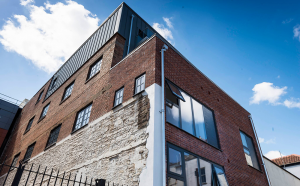Whether you’re building a new house or making important renovations to a building then you’ll need a completion certificate to confirm the building work has been done to the right standard.
The process of getting a completion certificate requires a competent and reliable building control professional surveyor to assess the building. This is to confirm that all the building work is above board and the building is safe, complying with building regulations.
What are the Building Regulations Which Need to be Met?
The first official set of building standards and regulations were introduced 1965. These were considerably updated with The Building Act in 1984 and have had minor policy changes and updates since then.
The updates to building regulation policies were to accommodate constantly evolving building practices, technology and construction. The 2012 amendment requires the completion certificate to be sent within 8 weeks and removes the need to apply to a local authority (can be given automatically if regulations are met) to further speed up the process.
The most current Building Regulations define and cover the following:
- The types of work or project that count as “building work” and are therefore subject to the regulations.
- Which buildings are exempt from the regulations. (usually temporary buildings)
- Standards and requirements for all aspects of building design and construction.
- The official communication procedures needed when planning, doing or completing building work.
The building regulations need to cover every aspect of architecture, engineering and construction in order to ensure that everything is clearly defined, and the requirements are easier to meet. This allows potential issues to be identified and addressed and it also makes sure certain health and safety considerations are made.
Here’s a full list of some of the things covered in the most up-to-date building regulations:
- Building Structure
- Fire Safety
- Site prep, contamination and moisture concerns
- Sound insulation and reduction
- Ventilation
- Toxic Substances
- Drainage and waste disposal
- Insulation and fuel conservation
- Building Access
- Protection from accidents
- Sanitation and hot water safety
How do I get a Building Regulation Approval?
This will depend on the size of the project and the extent of the building work being done. For large developments and projects like a new-build house, a ‘full plans’ application is required, and this means that approval will be given before any building work is done.
For renovation, extensions and smaller projects, approval is given in the form of a ‘building notice’. For these types of projects and other small building works, the inspection process is carried out throughout the building process. The building inspector will approve the work at each stage, requiring more frequent site visits.
Read our 10 top tips for planning an extension >
In general, both types of approval are given by either your local authority’s building control department or an approved building inspector like us, here at Cook Brown. The inspector or surveyor should then be notified when important works are being done so that they can carry out any necessary inspections.
Learn more about Approved Inspectors >

What is a Building Completion Certificate and how do I get it?
When the works are done or the building is complete then the building control body or official should be notified. Upon completion of all the necessary surveys and inspections, a completion certificate is issued. This is evidence that the building process has been managed and executed effectively.
In some cases, such as very minor works, the tradesperson can actually issue a completion certificate under the competent person’s scheme. The allows a competent installer or builder to verify that the work done is above board.
If your completion certificate was issued by a local authority, then they will typically have a copy of certificate you can request should you lose it or require a new one.
This is the end of the approval process, and the certificate serves to confirm all the building regulations have been met.
Do I need a Building Regulation Completion Certificate to Sell my House?
Housing regulation is equally as important as commercial building regulation. Whether you are re-mortgaging your house or outright selling it, a completion certificate is very important. It confirms that the building is safe to live in so what’s more important is finding out why the building was not issued one originally. If it’s been misplaced, then you can get a new one for a fee from your local authority that carried out inspections.
If you don’t have a completion certificate and can’t get a replacement, then you can apply for a regularisation certificate. With a full survey, there are then certain insurances that can be taken out but this is not usually an advisable route due to various issues that can arise.
Getting Approval, Meeting Building Regulations and Obtaining a Completion Certificate
If you were wondering what a completion certificate is how to get it then hopefully we’ve answered all your questions and outlined the process to make things a bit easier. Remember, while very minor works may not require a completion certificate, it is required for a lot of building work it’s better to double-check before any work is done.
Here at Cook Brown, we take building control very seriously and our team of competent, approved building inspectors provide a reliable alternative to Local Authority Building Control and are authorised under the Building Act 1984.
Feel free to get in touch on 01275 848228 or info@cookbrown.co.uk and learn how we can help your make sure you meet requirements and regulations.